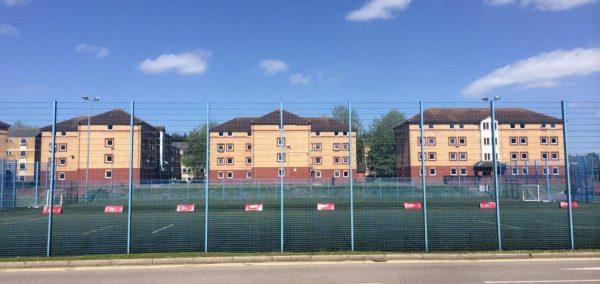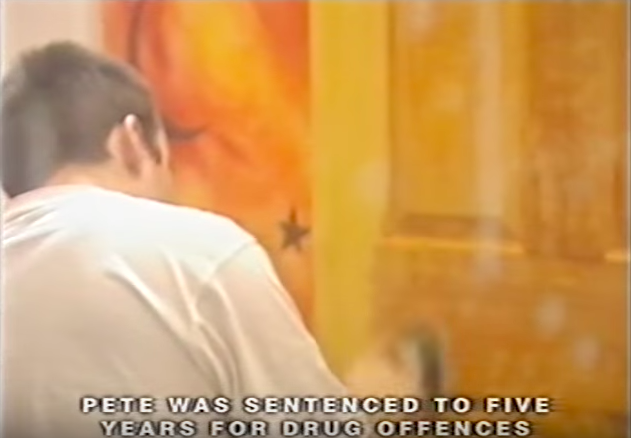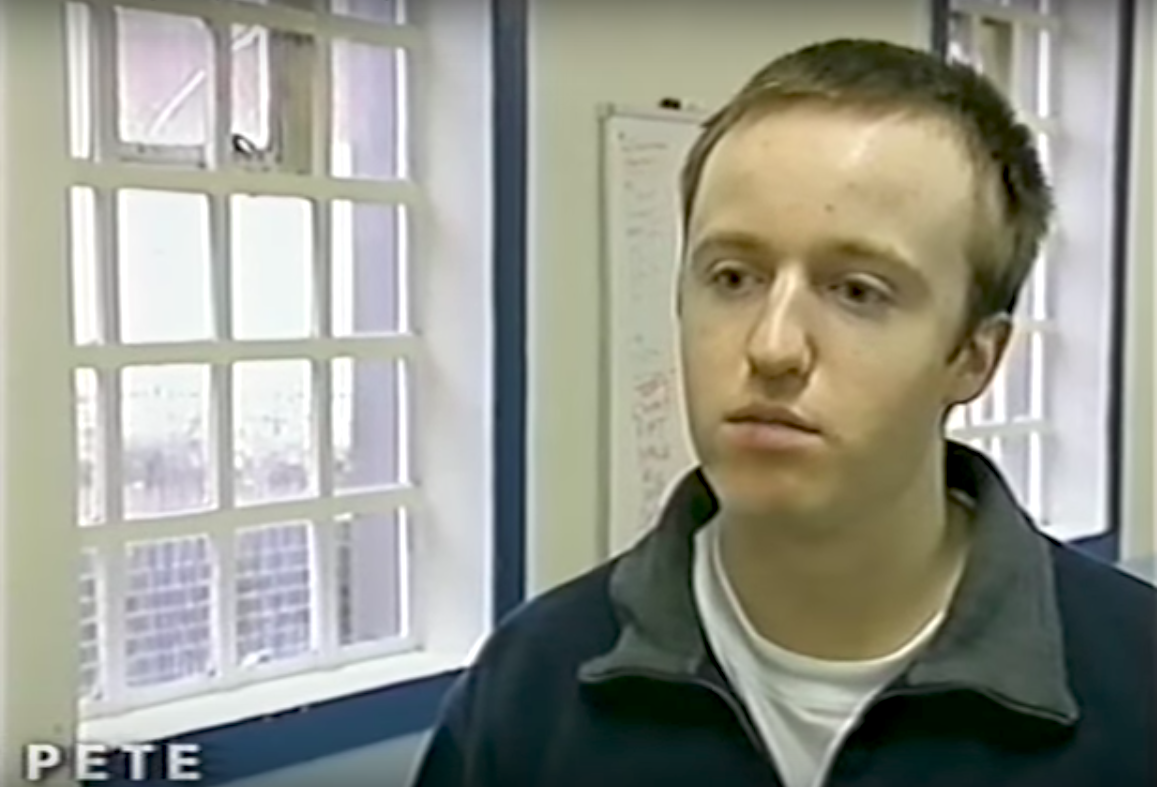
This former Cardiff student’s drug smuggling took him from halls to an Ecuadorian jail cell
Pieter Tritton spent nine years in one of South America’s worst prisons
Pieter Tritton started selling pills from his room in Cardiff uni halls.
20 years later, he was released from prison at the tail end of a journey that took him from dealing to eager students, to spending nine years in a gang-controlled Ecuadorian jail for smuggling cocaine.
This is the story of a man who went across continents living the high life, and had it all come crashing back down.
Pieter started off selling drugs to fellow students at Cardiff uni
At 19-years-old, Pieter studied Archaeology at Cardiff in 1995. Using contacts from home, he brought drugs up to Cardiff to sell to other people in halls.
He would sell to an eclectic mix of students, and says that his customers “tended to be students who were a little bit wilder, a little bit different.", Pieter said. "There were a couple of occasions where I’d be surprised by the people who’d knock on the door, I’d be like ‘fucking hell, I didn’t know you took drugs’. The last people you expect, really. A few doctors.”

Pieter lived in Cardiff's Talybont halls in first year
Soon, he moved beyond selling to other students and was involved in the local scene. He tells me it started when he was "introduced to a couple of local guys, one of whom was a student.
"Obviously I started selling to them – but I said ‘speak to the people who you’re buying from previously, around Cardiff, and see if they might be interested in buying from me as well’ to expand my market.
“They were, and by this point I’d started bringing stuff down from London, because obviously the amounts had increased.”
By now, Pieter was selling cocaine alongside pills and hash.
“It did get quite big, certainly towards the end of my time at Cardiff,” says Pieter, who, according to Vice, was selling around a kilo of coke a week.
He dropped out of uni and decided to expand to Scotland
University firmly behind him, Pieter tells me it was a conscious decision to ramp things up. "I remember at one point looking at a map of Britain," he says, "and thinking, well, I’ve got South Wales pretty much sewn up, Bristol and the South, the central area around Oxfordshire and all of that, Gloucestershire. So I looked at the map and said ‘Scotland looks pretty attractive to me, and the prices are pretty high’."
By this point, he was selling 30,000 pills, up to 1,000 kilos of hash, and around five kilos of coke each month.
Topping up his student loan was now a distant memory. But, despite there being serious sums of money involved, Pieter doesn't think of that as being the main draw for him. “I’ve always thought the dealing of the drugs was more addictive than the taking of the drugs,” he says. “It was the adrenaline really. The excitement of planning it, and getting it back, making it happen. It’s quite a big affair. That’s what I enjoyed really – the money to me was not of such importance.”
Eventually, the police came. Caught with 5,000 pills, 2.5 kilos of speed, nine kilos of cannabis, 102 grams of cocaine, and around 100 grams of heroin, Pieter was sentenced to five years in prison.

A screenshot from 'Banged Up', which followed Pieter's time in prison
After spending two and a half years in prison, he started importing cocaine from Ecuador
Released from prison after 2.5 years, Pieter turned his hand to more legitimate business, but it was short lived.
Finding that being a painter and decorator was not to his taste, Pieter decided shortly to import cocaine from South America.
His method, which he was "completely hooked" on, involved organising the importing of tents laced with cocaine, a method Pieter says would get past X-ray scanners, dogs, and chemical tests.
Not wanting to send someone on a trip he hadn't done, he did the first trip himself. "The first one’s probably gonna come through okay because the police won’t be watching yet," he says. "It’s very unlikely they’ve got any information on us because we’ve only just started. The police will generally let the first two, three, four shipments come through until they’ve got enough evidence on everyone, and then they will arrest you."
Despite being questioned on a stopover in Holland, Pieter returned home with the first shipment intact. From then on, he recruited 'passengers', people who "were working, had a minimal criminal record, were well presented, well spoken, stayed calm under pressure," and paid them £10,000 for the trip from Ecuador to the UK.
To ease their nerves, Pieter would deal with his Colombian contacts, pick up the tent, store it, and give it to the 'passenger'. This way, he says, it kept them "a lot happier and a lot calmer, being guided around and looked after a bit."
"It worked. We didn't lose a single passenger. Not one."
He says that police estimates placed the value of the drugs smuggled at around "three, four million, which wasn't far wrong."

During his time in UK prison
His downfall came after two of his laboratories were raided
Eventually, it all came to a halt. After a lab in London was raided, one of Pieter's Colombian business partners turned informant. From this point, Pieter went to extreme lengths to avoid the surveillance he knew he was under.
“We would never talk on phones. I wouldn’t even talk in a car, in an enclosed environment. I wouldn’t talk in a house, in a hotel room. We would have to go into the middle of a field – no phones, nothing electronic around us – miles from anywhere, and then have a conversation. I think that’s why I didn’t get arrested in England."
If the first lab raid was the beginning of the end, a second raided lab, in Edinburgh, was the beginning of the end of the end. "The knock on the door was coming," he says, "so I got smuggled out of the country by the Turkish mafia to France, dropped all my electronic communications, and disappeared over there for a while.”
Pieter decided to make one final trip to Ecuador. "I knew the game was up, really," he says. "I shouldn't have gone out there and done that last one. It was arrogance and greed I suppose."
When he was arrested in a hotel room in Ecuador, Pieter had eight kilos of cocaine. He was sentenced to 12 years in prison.

He spent nine years in Ecuadorian prisons, contending with gangs, murders, and illness
Six of the nine years he served were spent in the middle of a gang war in a prison in Guayaquil, on Ecuador's coast, where he says there were "between four and six murders every week".
Guns, prostitution, and drugs were everywhere. Prisoners would continue running their drug smuggling operations from within prison.
With guards and prison staff on the gangs' payroll, survival was a matter of money and making the right friends, he says. “I portrayed myself – which wasn’t totally untrue – as having contacts in Europe with the potential to buy a lot of cocaine from them in the future. Obviously they would have to watch my back until such a point came when we could do something."
Despite contracting tuberculosis and getting hit with shrapnel during a gun fight, Pieter managed to get by. Managing to get transferred back to the UK, Pieter saw out the rest of his sentence in Wandsworth Prison.
It's a life he's left behind now. He describes how the scene has become far more cutthroat since he began, with "people who won't hesitate to pull a trigger and kill you for nothing."
Instead, he's settled down, and has written a book about his time in Ecuador, El Infierno. Aside from writing a second book, he plans to educate people about drugs, as well as importing "emeralds, coffee, fruit, and definitely not cocaine" from South America.





















